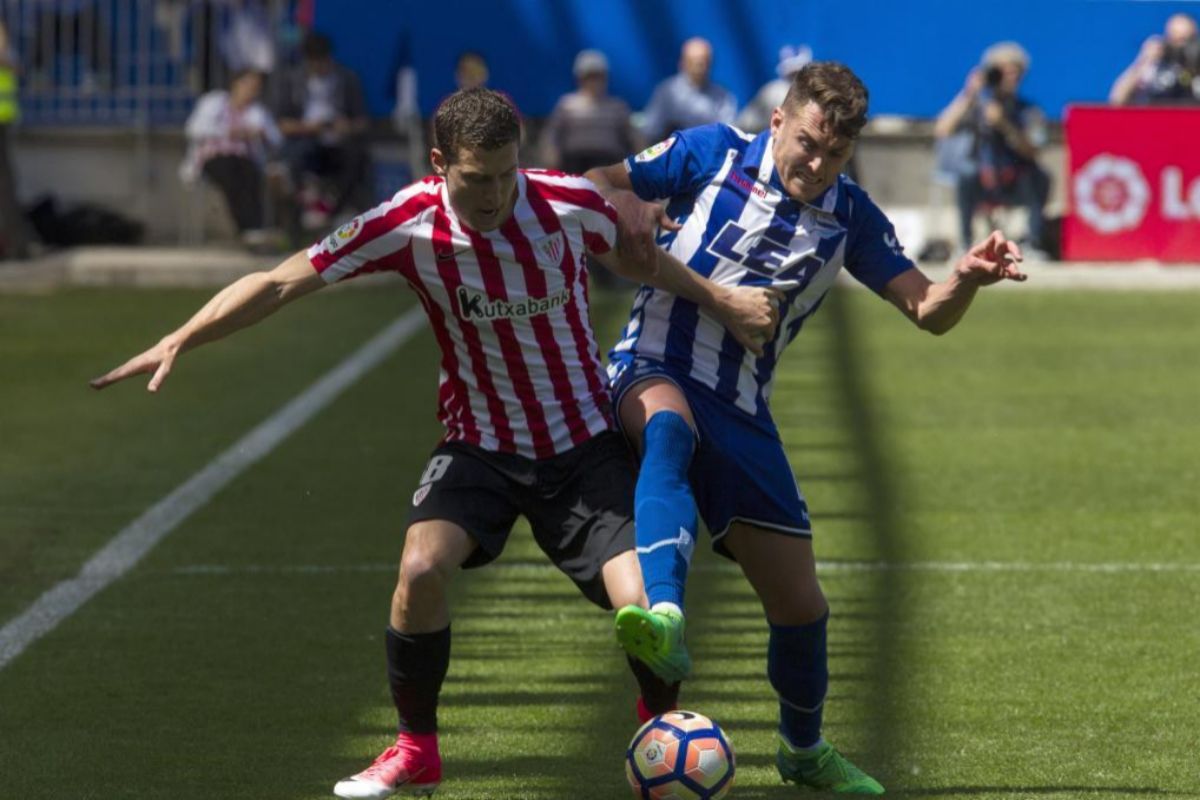Óscar de Marcos is a First Division footballer who agrees to grant an interview three days after being the father of his first son. "It doesn't cost me anything, man," says the Athletic player, downplaying the anomaly, just before starting a conversation in which soccer is not even mentioned.
How have you lived the experience of being a first-time parent in this situation? Like everything else, with uncertainty. We live in a delicate situation in which no one can leave the house, but we had no choice but to do it and also to a hospital, which is the area where the virus most likely moves. I saw my wife calm and that gave me peace of mind. We were in the hospital for a couple of days and back home. They saw that both the mother and the child were fine, without complications, and we were discharged as soon as possible to avoid the risk of being in the hospital. I was able to attend the delivery, at least. I thought that perhaps I could not due to the restrictions that there is. I was lucky because everything is very complicated with the patients' companions, but in deliveries they did allow it and I was able to witness it. The grandparents and the rest of the family have not been able to meet him yet and it is the pain we have left, but at least they have been able to see him by videoconference. Being in a hospital for a delivery in these circumstances must generate, at least, some concern We did what they told us, we did not leave the room in two days to have the least possible risk, because your health, that of your family and that of other people, is at stake. We strictly follow the orders they gave us, we only went out to go home. That his wife is a doctor would help him stay calm. Of course, it gives you a lot of peace of mind. I have no idea about anything and having a knowledgeable person at your side reassures you. In a way, it will have been a relief that this situation has taken his wife off, because yes, because she was going to be exposed to risks yes or yes. If she hadn't been a mother, she would have been in the hospital working. She suffers for them and supports her colleagues at a distance, because now it is her turn to be with the family. This crisis is serving so that the whole society values the toilets much more. Let's see, I am not going to do the Ready, until I met her I had no idea of that world. Since then I have been very closely involved and I see how important they are. I wish these things never happened, but they are helping us to rethink certain things and keep in mind that there are very valuable professionals in this society. Not only toilets, but also those who work in supermarkets, those who clean ... Many people did not value them enough and now it is becoming clear that they are essential. Do you think that this crisis reveals our strength or our fragility as a society ? If I look out the window, I see that society is strong, committed, that it is fulfilling what is asked of it. We all get videos of people who don't behave as they should, but they are the exception. Most do wonderfully and that has to be our strength as a society. Many times we do not value what we have. This situation is teaching us to keep our feet on the ground, to value our health and to think about how bad it is for other people. You were in Togo a few years ago and even wrote a book about your experience. How are they living there? For them it is a very difficult situation. The fewer resources you have, the more difficult it is to face this pandemic, because this crisis increases the fragility of people with more needs. But they suffer on a daily basis, although hardly anybody talks about them because Togo is not in Europe.According to the criteria of The Trust Project
Know more- soccer
- Athletic de Bilbao
Soccer Villarreal will file a complaint with the Technical Referees Committee for arbitration and the use of the VAR in San Mamés
LaLigaA controversial penalty redeems a great Athletic
FútbolDavid Aganzo, president of the AFE: "We will do everything possible so that it is not played"

